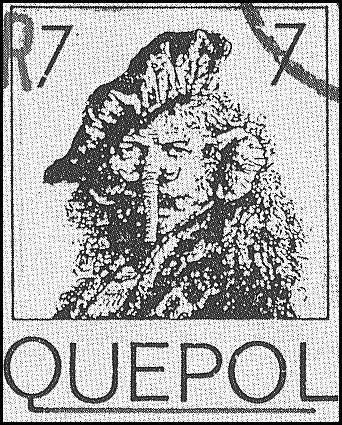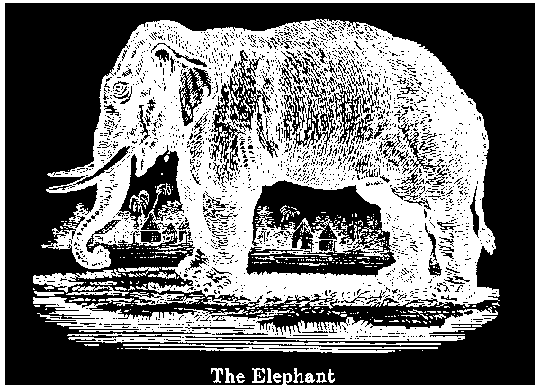Christopher Nicholson
(Morrow)

Elephants, then as now, are not necessarily easy to come by, even more difficult to care for (their appetites are, in a word, "elephantine,") and so Jenny passes through the hands of many owners, along with Tom, ending up in a "Menagery," where she is shown off to the gentry along with a ragged monkey and an even more ragged lion.
The interest here is in boy-loves-elephant angle ... and it is nicely done. Since, as a youth, I was not all that good at communicating with my fellow human beings, I recall being inordinately fond of boy-dotes-on-dog and dog-rescues-boy stories, especially those from the pen of Albert Payson Terhune. Here we have a boy's companion who is a dam site far more fulfilling than a mere dog, along with an elephant-loves-boy boy-loves-elephant tale told with enough pith to touch the heart. Tom talks to Jenny, Jenny talks to Tom, ultimately telling him that she is going to write the "True History of Tom Page."
- "I write in my head ... Surely, is it not true that all writing begins in the head?"
"Or in the heart. Well ... but how many pages have you written?"
"I am not writing in pages. It is all one page."
"And where does this History end? Here? Not here, I hope."
The end of her trunk gave an expressive twirl, this way and that. "Why, Tom, of course not; there are many possibilities," she said.
There are many possibilities here, in the life of an elephant in eighteenth century England, and a young man, in league (if not in love) with that elephant. We see the lords of the manor, and the lives of the very poor. We see the whores and drunks of London. We participate in learned arguments about Reason, the difference between the mental faculties of animals and "higher animals," e.g. man.
There is an extended argument on the subject of Reason between Tom's master, Lord Lidborough, and Mr. Arbuthnot and Dr. Casey. Mrs. Arbuthnot tells of a parrot "that could speak fluent Milton."
- Mr. Arbuthnot: "If I remember correctly, Mr. Urquart told me that Mrs. Urquart's cousin believed the parrot was Milton himself, transmogrified by the Devil!"
And, finally, there at the end, Tom and his companion turn up, freed from the fog and the stink of London,
- What joy they must have taken in their escape from the city. What joy they must have felt as they crossed meadows white with lady's smock, as they trailed through fields of long, silvery grass skimmed by swallows.
